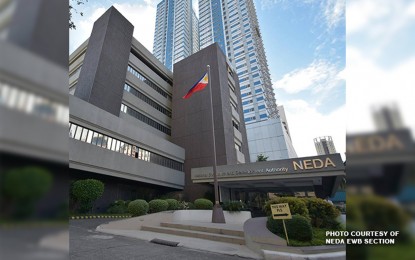
MANILA - The government must be proactive in addressing supply bottlenecks and implementing price control measures on necessities following the spread of coronavirus disease 2019 (Covid-19), the National Economic and Development Authority (NEDA) said.
The country’s headline inflation decelerated for the second month to 2.5 percent in March 2020, from 2.6 percent in February 2020 and 3.3 percent in March 2019. This is well within the government’s target of 2.0 to 4.0 percent this year.
The slower inflation was largely due to the substantial decline in the price index of operation of personal transport equipment and continued deflation in electricity, gas, and other fuels.
In line with the effects of the spread of Covid-19, Socioeconomic Planning Secretary Ernesto Pernia said it is important for the government to implement seamless delivery of necessities and strict enforcement of price control measures.
These are needed to avoid possible profiteering of unscrupulous traders and retailers, he said.
“We need to provide post-harvest facilities and logistic support, in close coordination with the local government. Initial field reports show that supply, particularly of agricultural commodities, is adequate but suppliers are having problems getting their produce to the market, to help affected essential industries produce and deliver their goods and services to the market,” he added in a statement Tuesday.
The Department of Agriculture (DA) and some local government units have started buying the produce directly from the farmers and distributing these through Kadiwa outlets, or mobile palengke.
Moreover, Pernia said the Philippines should be well-positioned against upward potential price pressures that may emanate from the tightening supply of rice from major markets.
“While we expect that the rice supply in the country will remain sufficient, we need to ensure that the country will have enough buffer stock of rice as Thailand and Vietnam cut down their exports,” he added.
Pernia also highlighted that the government must provide immediate support and assistance to local farmers that were negatively affected by the enhanced community quarantine.
“We need to fast-track the disbursement of the Rice Competitiveness Enhancement Fund to improve the country’s agricultural productivity and food security in the long term,” he said.
Pernia emphasized the need to intensify biosecurity and quarantine measures to control the spread and eradicate the presence of the African swine fever in the country.
“The presence of these animal-borne diseases in the country calls for a more effective implementation of the prevention and protection programs as well as heightened monitoring of possible resurgence of other infectious diseases,” he said.
The Inter-agency Task Force Technical Working Group for Anticipatory and Forward Planning, chaired by NEDA, has conducted surveys for business owners, consumers, and agriculture and fisheries sector.
A public consultation on the “new normal” has also been opened. A report of the group will serve as a blueprint for a whole-of-government-cum-
